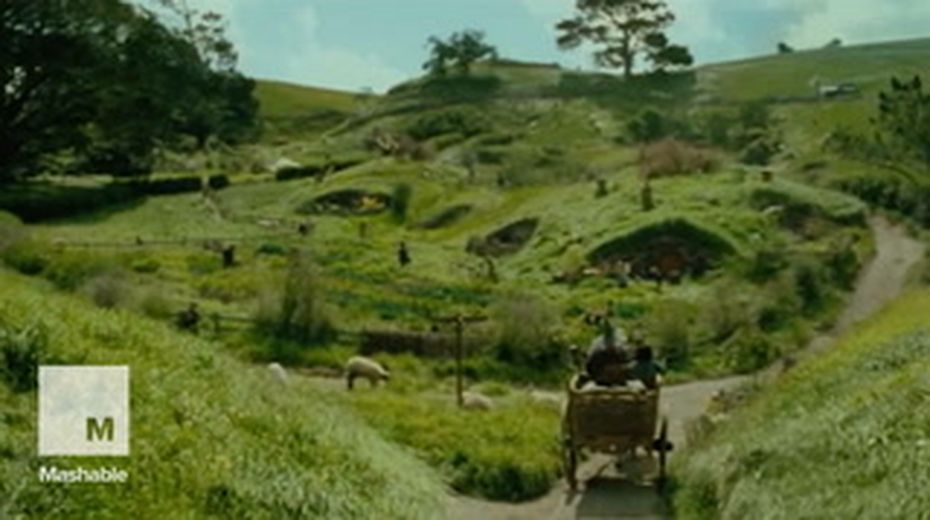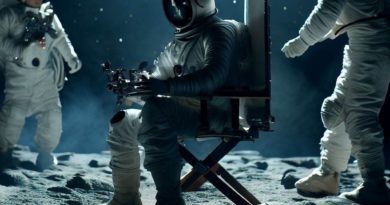Moon landing conspiracy theories are as old as the Apollo 11 mission itself
On July 20, 1969, NASA astronaut Neil Armstrong and Buzz Aldrin set foot on the moon for the first time, bounding across the lunar surface and pushing the United States fully into the space age.
But almost immediately — in bars and homes around the country — people refused to believe it was real, and thus, the moon landing conspiracy was born.
While the particulars of the conspiracy theories have become somewhat nuanced over the years, the idea hinges upon one specific idea: NASA and the U.S. government never sent people to the moon. It was faked.
“It was immediate. It was at the time of the Apollo 11 landing,” space historian Roger Launius said in an interview, explaining that people were immediately doubtful that people had landed on the moon.
New York Times reporter John Noble Wilford wrote about a few barflys in Chicago who believed that the moon landing was faked by Hollywood. Other informal, non-scientific polls by news agencies around the U.S. at the time also found that a small percentage of people questioned the moon landing, Launius added.
From a photo that appears to show the American flag waving on the moon to claims that the belt of radiation surrounding the Earth would have killed Aldrin and Armstrong, moon landing hoax devotees will cling to anything as evidence to support their theories.
But instead of examining the science that disproves these claims — and there is a lot of science to disprove them — perhaps the more interesting question is why people believed (and still seem to believe) that the moon landing was faked today.
“There are lots of people who have expressed dismay or disbelief about this. Some of them are just naive, and that’s what my grandfather was, and didn’t necessarily understand all of this,” Launius said.
“There are those who have an axe to grind of some type or another that have complete and utter distrust of anything the government says … There are those who just want to stir the pot and think they know something nobody else knows,” Launius added.
And there are also people who just found a way to make money off the story of the hoax, Launius said. People write books, speak for a fee, and make videos touting the conspiracy in the name of fame and cash.
[embedded content]
According to Launius, public opinion polls usually show that about 4 to 5 percent of the public questions the reality of the moon landing, which is within the margin of error for many of these kinds of polls.
That said, those who do seem to believe in the vast government conspiracy certainly have an online community to turn to now.
Users on Twitter, Reddit, and any number of web forums exchange information about the moon landing hoax and even more ridiculous sounding theories — go ahead and look up the hollow Earthers for some fun.
Conspiracy theorists are able to share their ideas far and wide today, pulling other, vulnerable people into the twisted idea themselves.
Even before the moon landing and the internet, a paper completely fabricated claims that astronomers had found life on the moon in the 1830s, Launius said. The paper actually published a series of stories complete with photos of the faked creatures.
“It became a cause celebre for almost a year before they finally debunked it,” Launius said.
Today, that 1830s-era moon hoax isn’t one you’ll necessarily see trumpeted by conspiracy theorists, yet still the doubts persist, especially in popular culture. Interstellar played with a moon landing conspiracy theory in its dystopian future, and some people even believe The Shining is about faking the moon landing.
With today’s flood of fake news and alternative facts, in some way, it’s comforting to know that these kinds of bogus ideas have been around for decades. We’re not alone in this wasteland of lies.
And it looks like we may never be.
The moon landing conspiracy — or really any other truly compelling conspiracy theory — won’t go away anytime soon.
“That’s one of the great attractions of conspiracy theories, that there’s something you don’t know,” Launius said. “Here, let me tell you about it.”



